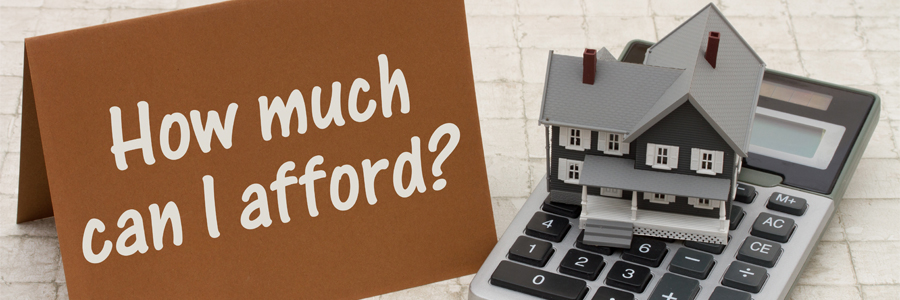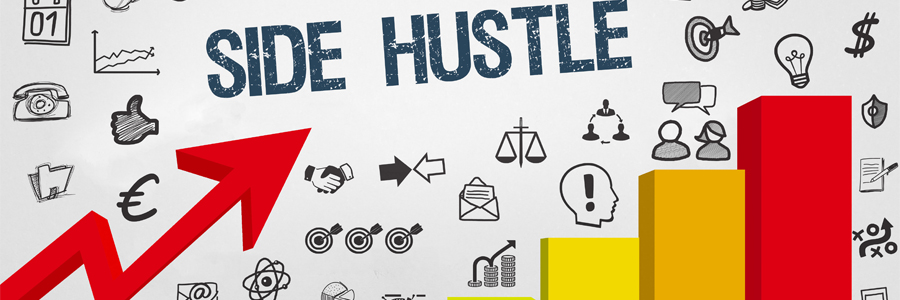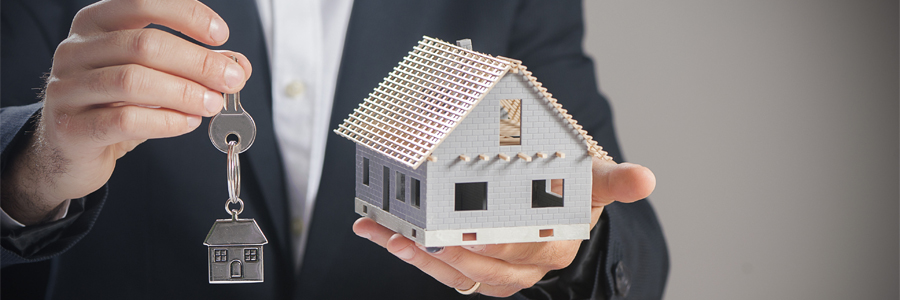ADDRESSING HOMEOWNERSHIP

YOUR HOME OR MOM’S?
While millennials account for the highest share of home buying activity last year, you also hold another record: the largest number of young people living with their parents (31%.) And that number is expected to grow, according to Census Bureau data. There are many reasons why this is occurring (and if you live at home, you probably know them all):
- Low salaries in a tight market
- Substantial debt
- Getting married later (nearly 10 years later than Gen X)
- High real estate prices (including rentals)
- Growing cost of living expenses
You’ll notice that ‘no job’ is not on that list. 90% of live-at-home millennials are gainfully employed. But with the many expenses you face, coming back to the family home is often the most financially responsible move you could make.

WHY THE BASEMENT IS NOT SO BAD

IS RENTING RIGHT?
Traditionally, young people’s first move was to an apartment or other rental property. Then, in their early 30s, they’d purchase a home. Today that’s not always the case. A recent survey showed that 80% of renters had no intention of trading up to homeownership anytime soon. Here are their top reasons:
- Affordability – renting is within your budget. And you know what your housing costs will be every month, because the landlord deals with all the repairs, upkeep, and yardwork.
- Flexibility – wanna go to Europe for a month? Relocating jobs? Suddenly need a larger (or smaller) place? It’s easy to pack up and go.
- Quality of life – you prefer to use your money (and free time) for enjoyment. And most probably, the cost of rent is much less than a monthly mortgage payment.

RENTING REALLY COSTS YOU
Renting certainly is easier to afford than buying, especially when you are first striking out on your own. But it comes with a huge price tag. One recent survey showed that young millennials spend an average of $92,600 on rent by the time they’re 30. And they will end up right where they started: owning nothing – and needing a place to live. Another rent-related problem: prices are rising quickly, and in many cases the cost of renting is virtually equal to carrying a home. It all adds up to a growing movement toward investing in real estate.

YOU HAVE TO LIVE SOMEWHERE
Let’s look at the next 30 years of your life. You can either pay over $500,000 in rent (assuming $1500/month), and still need to shell out for a place a to live. Or you can put that $1500 a month toward paying down a mortgage, and end up owning your home, and living rent-free (mortgage payment-free, that is.) Yes, there are other costs you’d need to pay with a home. But you also get these benefits:
- You can put down roots
- You’re protected from rising rents
- The place can’t be sold out from under you
- You’re building equity as property values rise
- Your home’s appreciation can help fund retirement or be a legacy for the kids
- You can decorate, extend, and upgrade pretty much to your heart’s content

WHAT CAN YOU AFFORD?
A home is probably the single largest purchase you will ever make. And while right now it may seem way beyond your financial reach, the more you learn about the purchase process, the closer you are to becoming an owner. Start by taking a snapshot of your financial picture. There are a number of ways to calculate how much house you can afford to carry. Rule of thumb from the FHA (Federal Housing Administration): spend 29% of your gross income on housing. That amount can increase if you have little or no debt. If you don’t want to give up your dinners out or weekends away, adjust the percentage down to leave ‘lifestyle’ money in your budget.
Use this calculator to get a ballpark figure of your price range: Affordability Calculator

COSTS OF BUYING A HOME
Very few of us can buy a home outright. So instead of plunking down hundreds of thousands of dollars, 98% of millennials pay for it a little at a time, with a home loan, or mortgage. Most mortgages usually come with a 30-year payback, and a fixed interest rate. Shorter terms mean higher monthly payments, but you pay less in interest. Here’s an overview of factors to consider when determining the costs you may incur:
- Down payment – This is the money you must pay upfront, which helps lenders know you’re a good bet for their mortgage loan. The amount of your down payment can vary, depending on your lender’s requirements. The more you put down, the better your loan’s interest rate will be. So it’s important to have a solid down payment of at least 10%. 20% or more is even better, because then you can also avoid PMI (see below). Amassing down payment money is probably the biggest hurdle you’ll face, and you are not alone in the struggle. At least 1/4th of millennial home buyers get help through financial gifts from family and friends. And others need more than seven years to save up enough cash, according to a recent study. (See below for some creative ways to get down payment funds.)
- Tax – You’ll be paying property tax on your home. This may be added to your monthly mortgage payment. Remember: property taxes usually rise over the years (but hopefully so will your income.)
- Private Mortgage Insurance (PMI) – When buyers have less than 20% down payment, lenders require private mortgage insurance. This protects them from losing their money should the borrower foreclose. Depending on your credit score and the amount of your down payment, a PMI policy can cost between 0.5% to 1.0% of your loan amount each year. For example, if you have a $200,000 mortgage, and PMI rate of 0.5%, your policy would cost $1000 year, and your monthly premium would be $83.33. In addition, lenders also require you to have a homeowners insurance policy to protect the property against loss.
- Other costs – You will incur closing costs, including legal fees, title search, document preparation, appraisals. You should expect your closing costs to be about 2-5% of your total purchase price. There may also be homeowner association fees or condo maintenance fees on the property you’re considering. And don’t forget moving vans, painters, blinds, lawn mowers. Not to mention heat, electric, and water bills.

A PRE-SHOPPING LIST
Think homeownership might be for you? Before you hit those open houses, make sure you can answer these questions:
- Are you debt-free? Do not even think of incurring more unless you are financially stable. That includes paying off student loans as well as consumer debt.
- How’s your credit? You’re asking someone to lend you hundreds of thousands of dollars. You need to be someone they can trust to pay back that loan. So before you ask, make sure your credit history shows a solid slew of on-time payments, a variety of accounts (car loan, credit card, etc.), a small amount of debt relative to your income. Make it a habit to check your credit report once a year. This helps protect you from identity theft or fraud, and gives you a chance to correct any errors that might have occurred.
- Do you know the score? The FHA rules that a credit score of 580 or higher requires a 3.5% down payment. A score that’s below 580 requires 10% down. Low scores will also cost you a lot more when you get your mortgage: The best (lowest) mortgage interest rates usually go to buyers whose scores are 700 – 770. Buyers with lower scores can expect to make significantly higher payments. For instance, let’s take the monthly payment (principal and interest) on a 30-year fixed rate mortgage of $200,000:
- at 4% interest, your payment would be $954.83
- at 5% interest, your payment would be $1073.64
You’d be paying $118.81 more per month. That adds up to $1,425.72 per year, and a whopping $42,771.60 additional over the life of your mortgage loan. So if your credit needs some fixing, take the time to do it before you begin the home purchase process. It will save you thousands of dollars.
- How stable are you? Lenders like to see a steady job history of at least two years. But they also understand many first-time buyers may not have breadth of experience. So they factor in other things such as education, and moves that advanced your career. If you’re thinking of switching jobs or there’s a possible relocation, homeownership isn’t for you at this time. Selling shortly after buying usually ends up costing the owner.
- How long will you stay? Experts agree you should plan to live in your home at least five years. Houses are not short-term investments because it costs you so much to get into one and you need time to recoup that money. The good news is, the longer you stay, the more likely you can recover your initial costs, and sell your home at a profit.

DEALING WITH DOWN PAYMENTS
It’s not news that the hardest part of buying a home can be coming up with the money for a down payment. But you might be surprised to learn that there are assistance programs out there that can reduce your requirements – or make them disappear entirely! There are nearly 2,500 down payment programs in the US, and the average amount of down payment assistance is about $11,500, according to an article in Realtor.com.
Start online, with sites such as:
The US Department of Housing and Urban Development (HUD) offers a variety of programs that assist with down payment and closing costs. HUD also has a link that connects to your state’s programs.
- Try crowdsourcing. Getting married? Expecting a child? Skip the requests for coffeemakers, china or cribs. Register for cash instead! Many couples are turning to sites like https://featherthenest.com and https://hatchmyhouse.com and requesting donations instead of shower and wedding gifts. Once you register and create your profile page, simply get the word out to family and friends, and they can donate directly on your page.
- Look at work. Many companies have Employer Assisted Housing programs providing interest-free loans for down payments. These loans, which are for low- to moderate-income employees, can be repaid over 10 years.
- Ask your folks. Gifts are frequently used for down payments. Just be sure you know your lender’s rules on getting outside help. The FHA, for example, allows gift funds only from immediately family members, and you must have a document from the giver declaring that the money is not a loan.
- Request seller concessions. Your seller may be willing to help, in order to close the deal.

START STRONG WITH PRE-APPROVAL
It’s a competitive market out there. Give yourself the advantage over other buyers by starting your home search with a mortgage pre-approval from your lender. It shows realtors and sellers that the lender has checked your credit and documentation, and verified that you are ready to receive a specific loan amount, once your property has been appraised. So there will be no surprises down the line. Tip: pre-qualification can help you pinpoint a price range. But that is just a first step in the home purchase process. Go for pre-approval instead. It can give you preferred status with sellers.

SIDE HUSTLES: HELP OR HINDRANCE?
The number of gig workers continues to rise as millennials go strictly freelance, or augment their income with second jobs. So how does that affect your ability to get a mortgage? If you qualify for a mortgage with the income from your ‘regular’ job, you don’t have to do a thing. Lenders want to see two years of income history, and that can be a bit difficult if you’re self-employed, do work that isn’t steady, or need your second income to qualify. If possible, provide documentation to verify all your income for two years prior to applying for a mortgage.
If you cannot, here are some ways to compensate:
- Build up a larger-than-required down payment (25-30%)
- Raise your credit score to 800
- Save up a year’s worth of mortgage payments in addition to down payment money
- Use a local bank or credit union for financing
More help is coming: in answer to the growing gig economy, mortgage lenders are beginning to develop new risk assessment models. These aim to increase income verification flexibility, which will help side hustlers qualify for a mortgage. Plus, alternative programs enable self-employed workers to count all their cash flow as income, not just the amount left after writing off expenses.

IT’S AN “L” OF A PROCESS
The path to homeownership isn’t as long – or as daunting – as you might think. And the earlier you start, the more ways your investment can pay off.
Just follow these signposts along the way:
- Look long and hard at your finances. Are you close to debt-free, with an income flow that can carry the costs of homeownership? Does your credit rating qualify you for favorable interest rates? Remember, once you plunk that down payment on a house, it can’t be invested anywhere else. Make sure a home is the smartest investment for your money.
- Learn everything you can about the costs involved, the neighborhood and school district, and the comparable values of homes in the area. Then learn everything about the place you’re buying, with a home inspection or engineer search. Informed is forewarned!
- Lock in a 30-year mortgage at a fixed rate. That ensures your monthly mortgage payment won’t go up, even if other prices do. Today’s interest rates are at near-historical lows, and you get to benefit by saving thousands of dollars if you can lock in now.
- Live happily ever after with tax deductions for interest payments and eligible expenses. You’ll also watch your home investment gain value as your equity grows. You’ll have the future benefit of rent-free living. Or the option of using your home’s equity to fund other investment opportunities.
